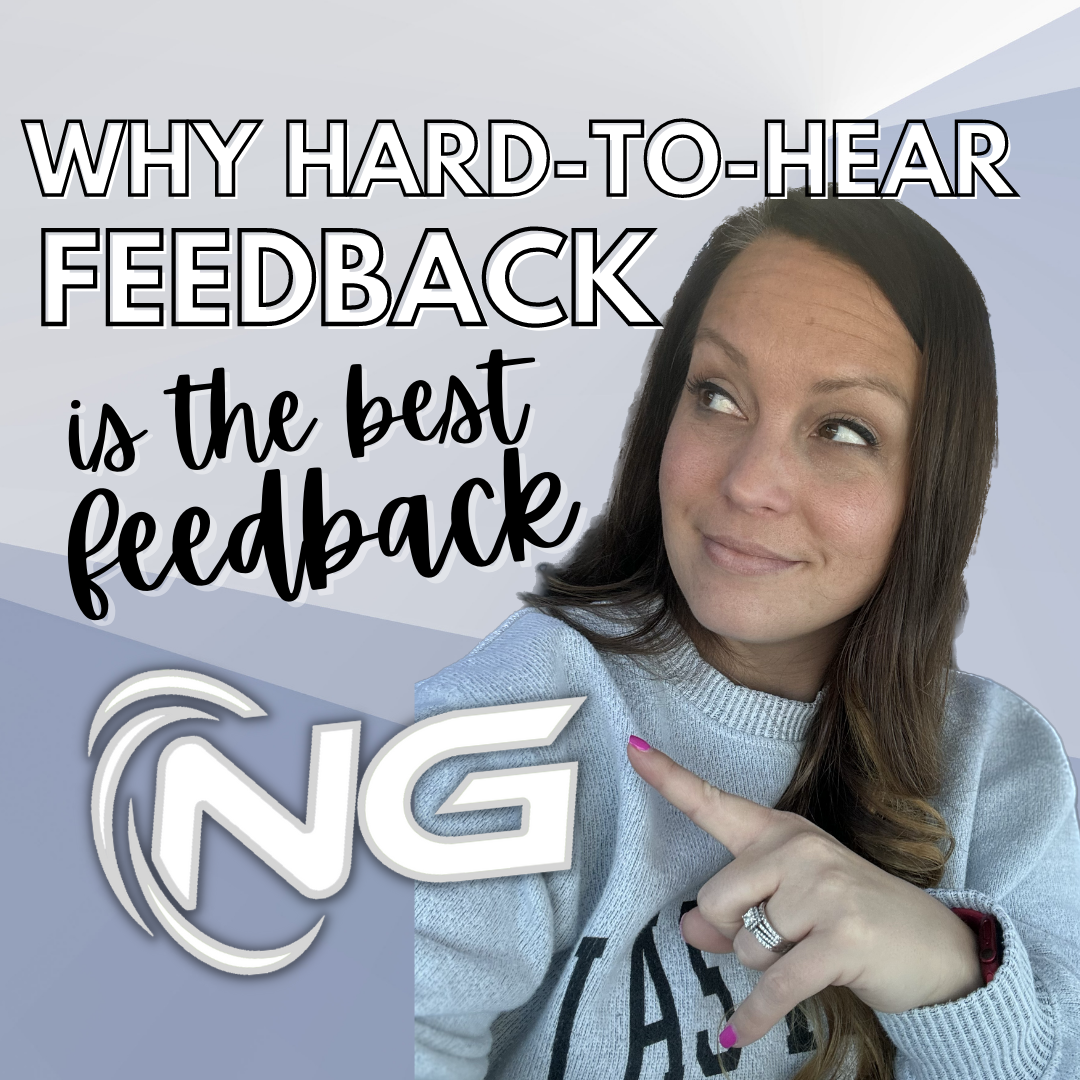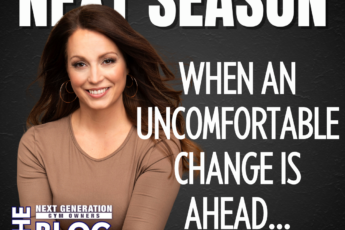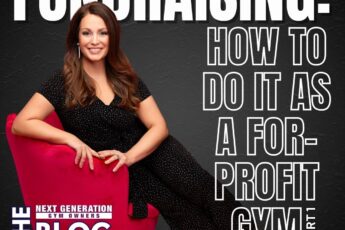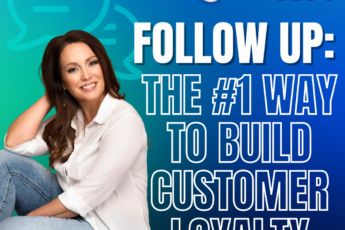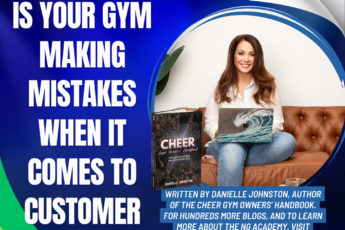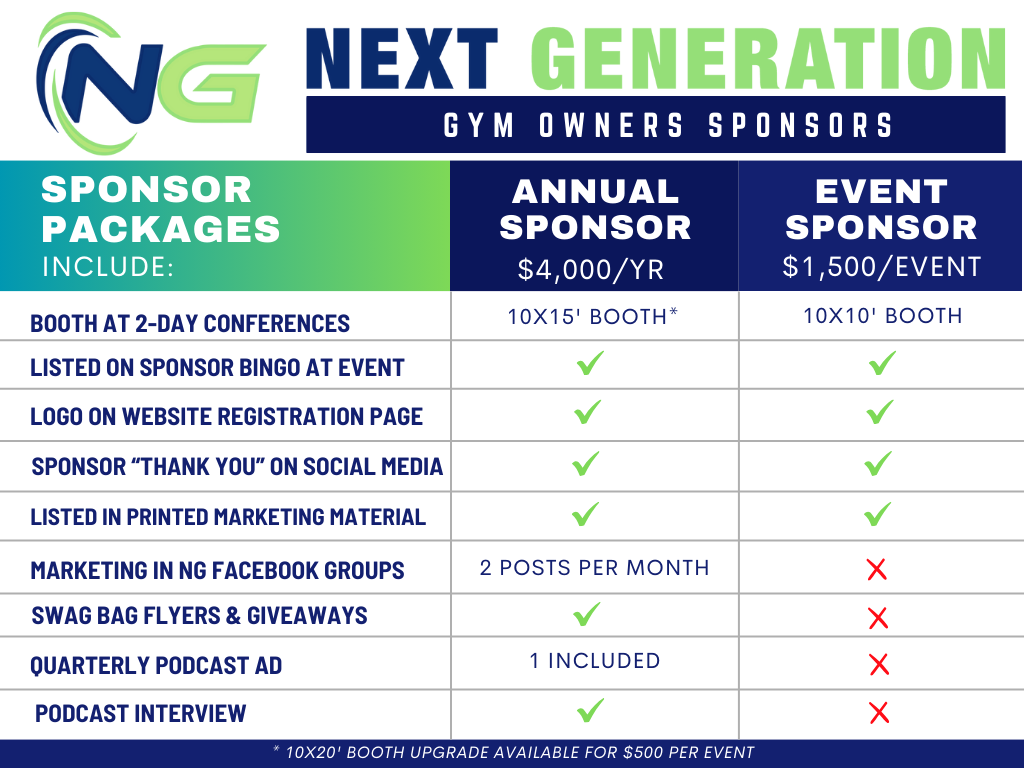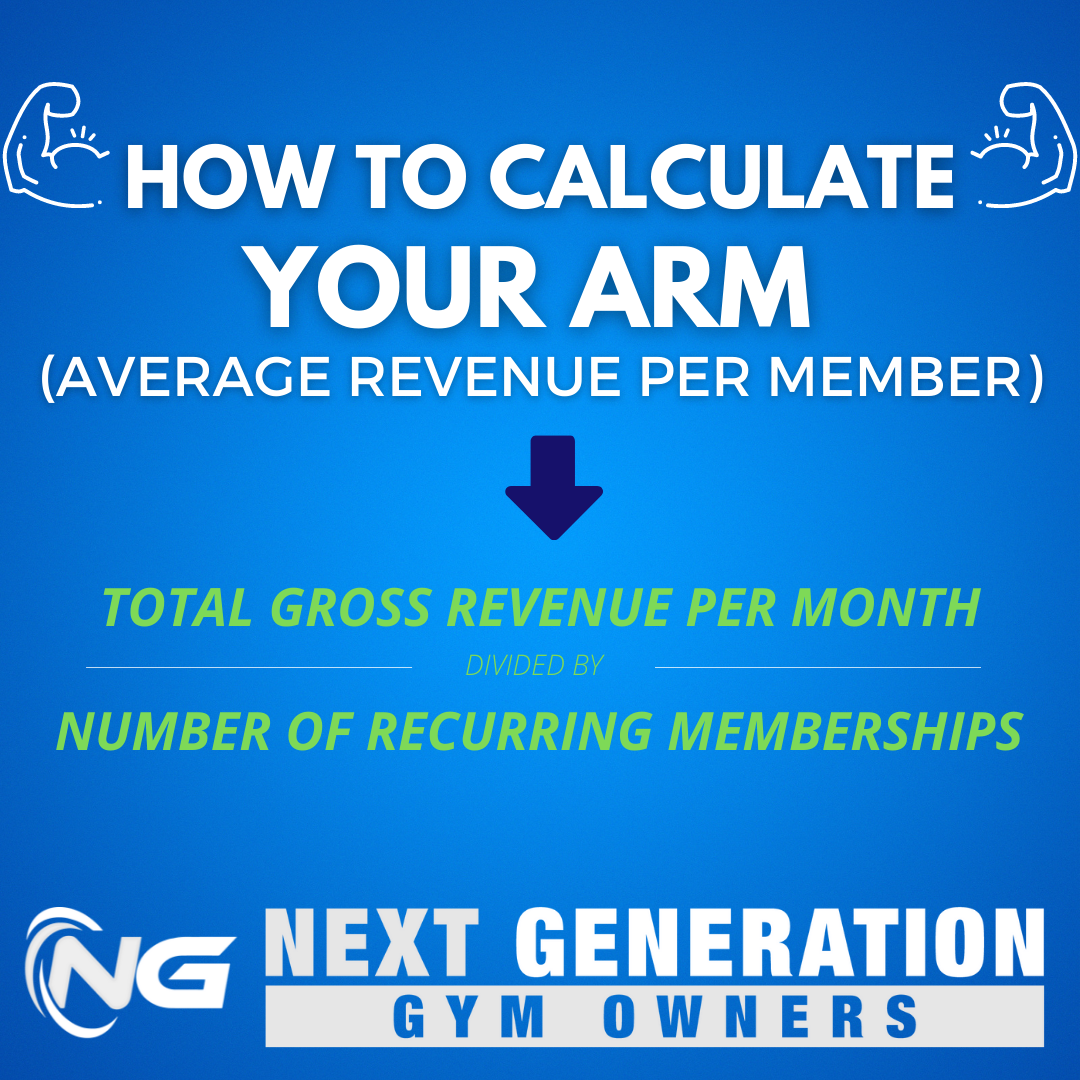Each year I host our Coffee & Conversation feedback sessions. Some teams have amazing feedback and reaffirm that we’re doing all the right stuff. Other teams give me feedback that I may not have enjoyed hearing, but I am grateful for it. Here’s how these work:
My teams aren’t huge, so I invite one team at a time to come into the gym for a 45-minute meeting. (I have two small dance teams I did combine this year as well as my Youth 1 and Youth 2 who have quite a few crossovers.) During this meeting, I tell the parents up front, “I’m going to take a ton of notes and write everything you say, but I’m not going to say very much back. I want you to feel comfortable in whatever you’re wanting to say and not feel like I’ll be defensive or that anyone will tell you you’re wrong.”
I do that for two reasons:
1) Some parents get very vocal with their thoughts about something. They may not realize we’ve tried something before and it didn’t work. I don’t want to shut down what they’re saying. Sometimes we’ve tried things and they didn’t work because we missed the mark just a bit. We’ve all tried things over the years and it didn’t work only to try it again a few years later and see huge success. Timing is everything, but we – as a gym and staff – also get better at our execution of things. Maybe a parent has a suggestion that can ensure our success the next time.
2) I am a talker. I have a hard time stopping myself when I hear something that’s wrong or even something that’s right that I want to reaffirm! I need to remind myself at the beginning of each meeting that I need to be quiet and let others speak. If I say it in front of the parents, I am more likely to stick to it.
The feedback
During these meetings, I ask a series of questions. I ask for feedback regarding the events we’ve attended so far this season if they believe their child has progressed, and if they believe we placed the right coach on their child’s team based on skill, level, and age.
Like I said, sometimes I leave with warm fuzzies that we’re really changing our community for the better. Other times, I leave feeling a little trained and overwhelmed because the feedback I received will require me to take action…and sometimes I’m not totally sure how to fix things right off the bat.
In the past years, I’ve received feedback regarding tumbling classes and tumbling coaches who didn’t push the kids enough feeling more like a rec class than a class for our elite athletes. I’ve heard parents say they hated so-and-so events and begged us never to return even though I loved the event itself. I’ve had parents give feedback on the lack of available space in the lobby (I have a huge lobby so that one is always tough to hear).
The toughest one is always feedback regarding coaches.
These are people I’ve loved whom we’ve poured our heart and soul into training. Let’s be honest too, I’m a coach, so sometimes the feedback is about me and that’s not always easy either.
This season I received an awful lot of feedback about me actually. It’s the first year in many years that I’ve had to take on three teams. Our program grew again this year and the coaching shortage is real. I have a lot of great young coaches who can co-coach a team but aren’t quite ready to take on a team alone. I have another phenomenal coach who has a full-time job and is getting married this year who also really can’t take on a team alone. I usually pair up coaches so they can take vacations and time off guiltlessly anyway – so I suppose coaching alone isn’t my style anyway.
Nevertheless, one of my teams had a really hard time accepting I wasn’t the head coach and wasn’t going to be at every practice. They were prepared for me to get their kids in shape and be super strict with them. Instead, I took a bit of a back seat while the head coach did her thing. I helped with stunting, but I wasn’t writing the lesson plans and acting as the final authority on decisions. It was important for that coach to do that this year, and it was important for our parents to recognize the roles between head coach and assistant. On another team, I am the head coach and have a 15-year-old junior coach who helps me. However, last summer, I was gone… a lot. I attended three conferences as a speaker and a participant, I went on family vacations, and I traveled many, many times. There were times I asked other coaches to sub for me, and other times I banked the practice to use the time later in the season. During coffee and conversation, a parent politely and respectfully said she feels like they missed out on a lot of training opportunities over the summer because I was gone so much. She was right.
What I do with the feedback
So how do we take this feedback and use it to our advantage?
Here are some of my takeaways from this year.
- As the owner, I can’t be the head coach anymore. I have a lot of responsibilities with Next Gen and I have kids of my own at home. When my daughter was sick at home last week, I felt terrible going to work to coach other kids and leaving her alone. She’s 12 and my house is right next to the gym, so she was always safe, but I wanted to be able to stay home with her. I couldn’t do that, because I was the head coach that night. I’m at a stage of life where I need a strong second coach so I can do all the things in life I want to do. I already know I’ll be gone almost the whole month of June, so I’m going to need to plan ahead by co-coaching with someone else. That said, I can probably take one of our up-and-coming coaches with me and prep them in advance for practices while I’m gone. I can use it as a training opportunity for them – knowing I’ll be there the majority of the regular season.
- I’ve got some coaches who need to get trained a bit sooner than I had expected. The hardest part about training coaches in all star is that you’re not just training the skills. You’re training for circumstances, troubleshooting and the what-ifs. That’s really hard to train quickly. That said, I have the ability to take some of our up-and-coming coaches to the NG Summer Conference, and I’ll probably need to plan ahead to do just that. We’ll have amazing opportunities for training, and I’m doing them an injustice to just throw them into the fire next season without giving them all the tools I possibly can.
- My gym families don’t love huge teams. The bigger teams this year didn’t feel like they got the bonding they did the previous year. I know a lot of people will tell me I’m ruining my profitability with smaller teams, but that’s just not true. It’s a numbers game. If the math makes sense, then I can continue to have smaller teams and give the families in my gym what they want.
- I did team reps this year to help at competitions. Parents who volunteered were amazing at helping check in teammates, fix bows, and answer the phone when other parents had questions or got lost. In fact, we took it a step further. I have a very open-gym concept. I like that parents can see their kids and pretty much hear what we’re saying to them at all times. That’s my gym culture. Warm-ups are one of the only places we truly just have coaches and kids. So, we got our team reps background checked this year and brought one per team into warm-ups with us. It was actually fantastic for a number of reasons. That said, I realized during our feedback sessions I did little to actually prepare our team reps for the job. They were thrown into it without much help at all. I got some great ideas from those reps for how to prepare future parents for the position, and the feedback was stuff I wouldn’t have thought of on my own.
- My parents are unicorns. They hate Band and love Facebook. We used Band in 2021-2022. We switched back to Facebook groups this past season. Every single team said they preferred Facebook and felt very well-informed this past season. In fact, other than the team reps, I didn’t get a single suggestion for how we could have better communicated this season. (That’s maybe the first time in 8 years of these meetings that I didn’t have parents telling us a “better” way to communicate.)
I’m not sure if that feedback will directly affect your ideas for your gym. In fact, it may seem like small potatoes to you. To me, it’s everything. It’s how we improve season over season. In my early years of these feedback sessions, I was getting really big comments about things that needed to be fixed. These days, my favorite part of doing these is the crowd I get of returning parents to our tryout meetings. Why? The last few slides of my tryout meetings always say, “Based on your feedback, here are the changes we’re making this season.” (Don’t worry, I have pages and pages of takeaways, so I’ll easily be able to find a few things other than “Danielle can’t do a team by herself again.”)
Why I won’t just do it the “easy way”
If I had simply handed these parents a paper survey and said, rank us 1-5, I might have gotten some 3’s. While it would be helpful to have a quantitative number of how we’re doing, it sure wouldn’t help me figure out how to fix it. With qualitative feedback, I don’t have to figure it all out myself. I don’t have to guess what parents are wanting. I can ask for clarification and get it right then and there. Sometimes parents have some wild feedback, and I know as soon as I hear it that I’m not going to do it. That shows me I’ve got to spend some time educating them, communicating better with them, or building our gym culture more effectively. Even bad ideas help me get good ideas on how to make my program better.

